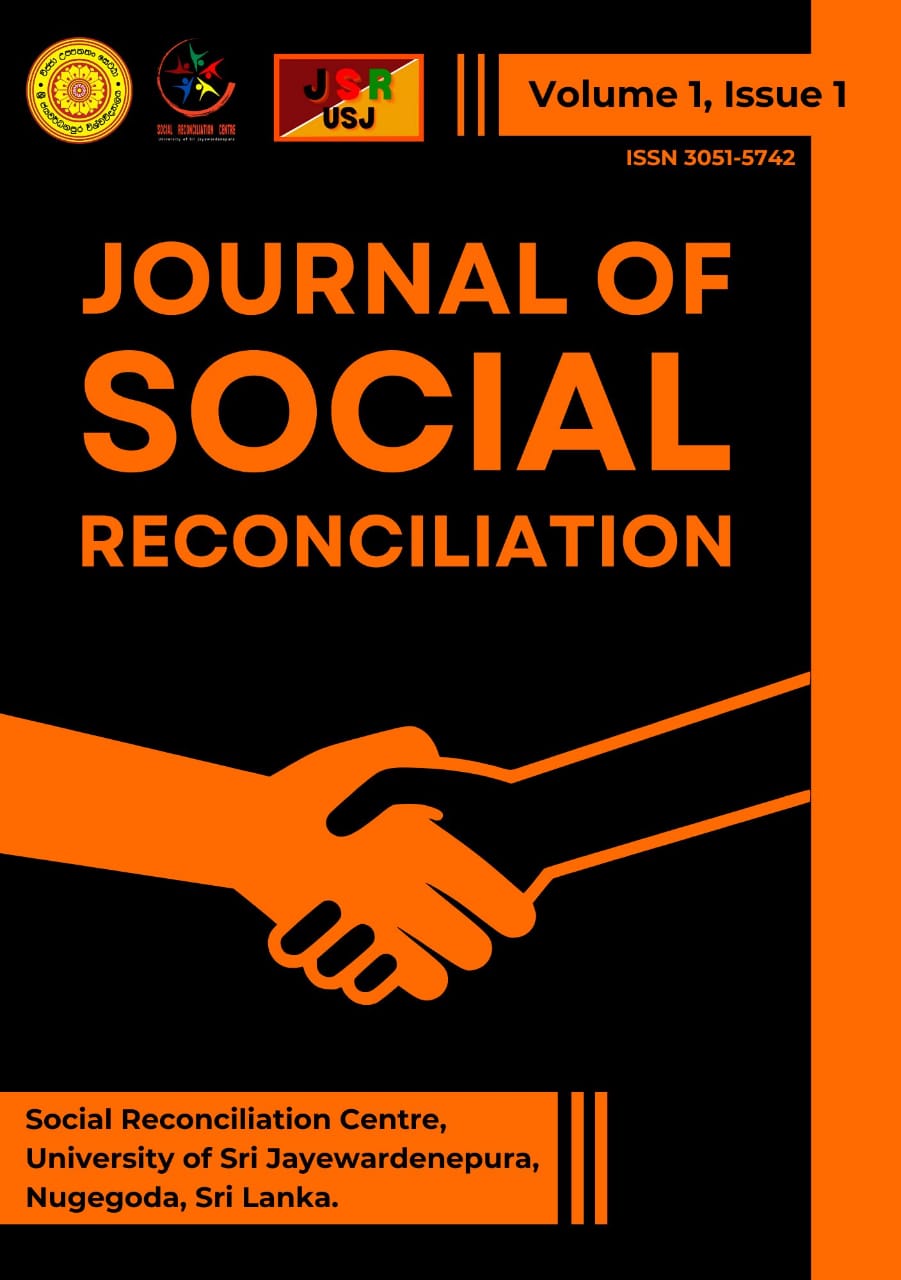THE SYNERGY OF SHARED RELIGIOUS ETHICS MORALITY AND VIRTUE FOR SOCIAL HEALING IN SRI LANKA
DOI:
https://doi.org/10.31357/jsr.v1i01.7532Keywords:
Ethics, Morality, Peace, Religion, ReconciliationAbstract
Sri Lanka is a pluralistic society with identifications of multiple ethnicities and religions. Exploring the cause of the ethnic conflicts in
Sri Lankan religion has been a seed for this presenting disharmony. This is not adequate for an ideology, in action, this has led to a thirty-year civil war and conflict between minorities. Therefore, the reconciliation process of Sri Lanka's religion plays a major role. Sri Lanka's community is representing the major religions faith of Buddhism, Hinduism, Catholicism, and Islam. The teachings of each religious tradition represent several distinct features, but examining the teachings related to the ethics, morals, and virtue of each religious tradition presents a similarity of teachings. Considering this significance, this study has formulated a shared value framework based on the ethical teachings of Sri Lankan religious traditions of Theravada Buddhism, Hinduism, Christianity, and Islam. The foundation of this framework was free will and the second layer was formulated with the common values of each religion which contributed towards peace and harmony. In the final stage, the individual is empowered to utilize the shared values of religion for reconciliation as their religious virtue. This framework reaches individuals with peace education and later it can be implemented in society. Thus, religion has a greater influence on the formation of individual personality, through this approach the individuals in Sri Lanka are able to reform their personalities to tolerate the diversity of their society within a viewpoint of the shared religious values system in Sri Lanka's major religious doctrines.



